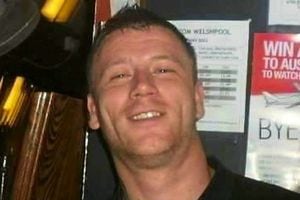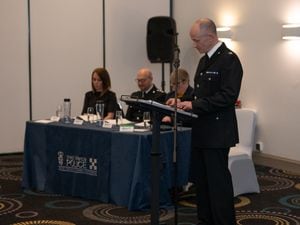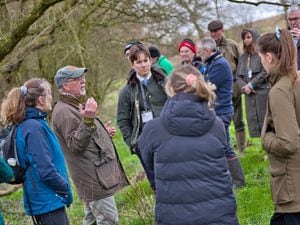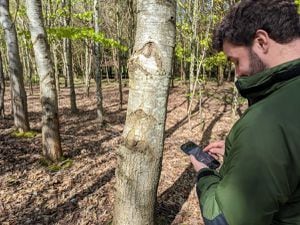Nearly 200 arrests since ban on 'legal highs' following Telford man's death
Nearly 200 people have been arrested in the first three months after a blanket ban on drugs formerly known as "legal highs" came into force.

New laws banning the sale of "psychoactive" substances came into force in May, following a campaign by the family of 29-year-old Shropshire man Jamie Penn.
People caught selling the substances, which mimic the effects of ecstasy, cannabis or cocaine, now face up to seven years in prison.
Mr Penn, a trainee bricklayer from Hadley, Telford, died an agonising death in May 2014, after buying the then legal drug 4,4-DMAR from a woman in Shrewsbury.
The drug reacted with ecstasy he had taken the night before.
Mr Penn's sister Charlotte Delo, who now gives talks in prisons and schools about the drugs, said it was a positive start for the new laws, although there was a lot of work to be done.
"I think it's a good start, it's better than it was before," she said.
"The wheels are in motion, and these places are being shut down.
"They are still around, we're aware of that, but they are not as easy to get as they were."
The first national figures since the Psychoactive Substances Act took effect on May 26 show that police have so far arrested 186 individuals.
In addition, 308 retailers are no longer selling the drugs and 24 "head shops" specialising in mind-altering substances have closed down altogether.
Commander Simon Bray, who is the National Police Chiefs Council's spokesman the new law, said a lot of businesses were either closing or diversifying into other areas before the act came into force. In other cases, police had been using existing legislation to try to close them down.
In relation to online activity, he said that some websites were now offering "ban-friendly" items, while others had changed domain names and moved abroad.
The National Crime Agency had taken action to shut down websites found to be in breach of the ban, and was working with international partners to address sites based overseas, the Home Office said.
Before the Act came into force, there was a list of drugs which had been declared illegal.
However, the drug manufacturers and dealers would get around the law by slightly altering their chemical make-up to get round the bans.
The new law bans all mind-altering substances, with exceptions for legitimate substances, such as food, alcohol, tobacco and caffeine.
Mr Bray said: "The law can't be outwitted in that sense any more because if it's psychoactive, it's psychoactive full stop.
"Therefore there is less incentive to have this sort of arms race-type approach whereby people are inventing new substances all the time simply to outwit what we do."
Although it was difficult to draw firm conclusions yet about the impact on use of the drugs, Mr Bray said: "Intuitively I think it must have had an effect. It will certainly make it less easy for the casual first-time user to get involved in this sort of stuff."
Mrs Delo said by making the drugs illegal, the Government had sent out a message that the drugs were not safe.
"A lot of people thought because they were legal, they must be all right, but they are just as dangerous," she said.
"The important thing now is to raise awareness of about the dangers."
Danny Kushlick, of the campaign group Transform which calls for the liberalisation of Britain's drugs laws, says the ban will have simply driven the dealers underground.
But Mrs Delo, of Haybridge Road, Hadley, said the drugs were already being sold by street dealers before the ban.
Safeguarding minister Sarah Newton said: "These dangerous drugs have already cost far too many lives.
"I'm encouraged to see that, three months in, police are using their new powers to take dealers off our streets and that so many retailers have been denied the chance to profit from this reckless trade.
"These drugs are not legal, they are not safe and we will not allow them to be sold in this country."





